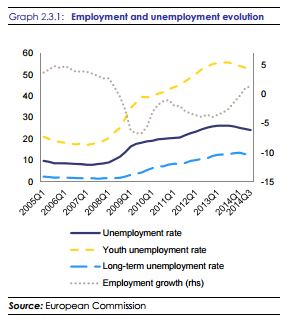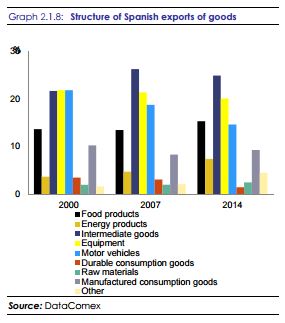So you want to move to Spain and are ready for a big change. Would you like to start your own business in the land of sangria and tapas? Here are some facts and things you should know to get you started. Starting a business in Spain is not impossible!
Spain’s economy
Spain had a 2016 Gross Domestic Product (GDP) of US$1.2 trillion and GDP per capita of US$26,528. Spain is the world’s 14th largest economy by nominal GDP and the 16th largest by purchasing power parity (PPP). The Spanish economy is 5th largest in the EU and the fourth largest in the Eurozone. It’s the world’s 12th biggest exporter. Despite the crisis, the unemployment rate is steadly decreasing, showing a positive economic evolution fo the Country.
Population: 48m
Public Debt/GDP: 98%
Unemployment: 24.5%
Inflation: -0.2%
Source: Forbes
Main industries
Textiles and apparel – Inditex
Food and beverages, esp. wine making – Chupa Chups, Freixenet SA
Metal and metal manufacturing – Acerinox
Chemicals – Uralita Group, Compania Logistica Hidrocarburos
Tourism – Iberia, Budgetplaces, Fiesta Hotels
Pharmaceuticals – Natra
As % of GDP
- Services 70.8
- Industry 26.0
- Agriculture 3.1
Starting a business in Spain
You can start a variety of businesses in Spain, including:
- Sole Trader (Empresario Individual or Autónomo)
- Limited liability company (Sociedad Limitada (SL) or Sociedad de Responsabilidad Limitada (SRL))
- Public Limited Company (Sociedad Anonima (SA))
- Partnership (Sociedad Civil)
- Joint enterprise (Comunidad de Bienes (CB))
- New Enterprise Limited Company (Sociedad Limitada Nueva Empresa (SLNE)
Before starting a business in Spain, foreigners must apply for a NIE or tax ID number. To do this visit a national police station (Comisaria) with a foreigner’s office (Oficina de Extranjeros)
Required documents:
- An application form Solicitud de Número de Identidad de Extranjero (NIE) y Certificados (form EX-15)
- Payment receipt stamped by the bank
- ID card or valid passport and a photocopy
- Two passport photographs
Comparison by country of various influencers on business. Scale runs from 1-100, with 1 being the best score.
Already started your own company in Spain? Leave your advice and experiences in the comments!



Everything is very open with a really clear clarification of
the challenges. It was definitely informative.
Your website is very useful. Thanks for sharing!